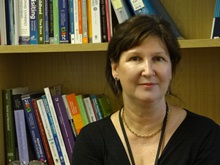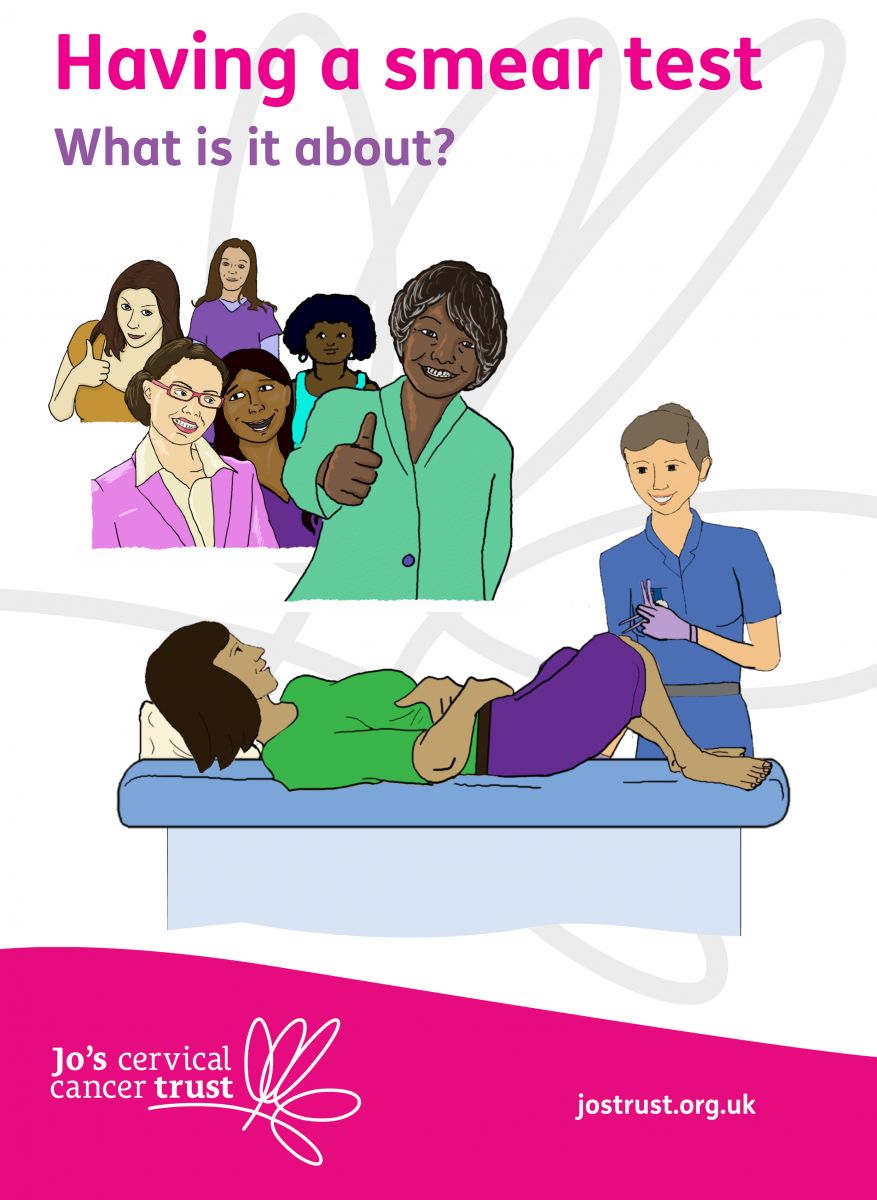Over the last ten years there has been a worrying decline in the number of women taking up their invitations for cervical screening. Of the UK women eligible for cervical screening, almost 3.7 million are putting themselves at risk of life-threatening cervical cancer by not attended cervical screening within the last five years. This that means one in four UK women are not attending their cervical screening.
Our research
In order to try and understand and combat this drop in uptake, we have conducted several surveys attempting to identify some of the barriers that may be preventing women from attending their screening.
The surveys and a summary of their results are listed below:
- Black, Asian and Minority Ethnic Women
- Women over 50 years old
- GP and employer flexibility
- Women with learning disabilities
You can also find more information about the studies and their findings on our research pages.
Please use the data from these surveys to help reduce barriers to screening within your surgery and to help you when you talk to your patients.
- You might want to consider extending screening surgery opening times; if you don’t already could you open a late night a week or perhaps on a weekend?
- Do you need materials to help reach those women that do not attend? Order from our resource centre free of charge
- Want tips on increasing cervical screening uptake? Download our resource full of tips and best practice from previous winners of our Cervical Screening Awards.
Black, Asian and Minority Ethnic Women
Awareness of cervical cancer and its prevention is lower amongst women from Black, Asian and Minority Ethnic (BAME) backgrounds. Different perceptions and barriers to screening are experienced by these women, and some communities do not recognise the term ‘cervical screening’ or ‘smear test’ [1]. Barriers to attendance include emotional (fear, embarrassment or shame) and considering themselves as low risk.
We found a third more BAME women of screening age (12%) compared to white women (8%) said they had never attended screening. 30% of Asian women didn’t know what cervical screening is.
Poor understanding of what the test was for and why it was important has been highlighted as a barrier to cervical screening, with twice as many BAME women (30%) as white women (14%) saying that better knowledge about the test and its importance would encourage them to attend the screening.
Furthermore, only 28% of BAME women said they felt comfortable talking to a male GP about cervical screening compared with 46% of white women. Read more about the data related to this survey.
Jessica’s story
 Jessica describes her experiences with cervical screening and abnormalities and some of the barriers she believes are present for women from BME communities.
Jessica describes her experiences with cervical screening and abnormalities and some of the barriers she believes are present for women from BME communities.
‘There is a prejudice in the BME community that only girls who sleep around can get cervical cancer and if you have only ever been with your husband and are a healthy person you can’t develop cervical cancer and don’t need to attend screening. Also, the information that is already provided needs to be adapted to the BME community with, for example, the inclusion of more visual material…’
Health literacy also plays a role in the low awareness particularly as some of the issues relate to the understanding and relevancy of cervical screening.
Use the Jo’s Cervical Cancer Trust education film for women from BAME communities to help women with low health literacy understand cervical screening – the film is available free of charge and in June 2016 we will launching translated film in the following languages: Arabic, Hindi, Urdu, Bengali, Chinese (Mandarin), Tamil and Polish.
Marie Therese’s story

Marie Therese is a Queen’s Nurse and a General Practice Nurse in Sheffield. She gives her opinions on the film:
‘As someone who has spoken to women’s support groups in various communities on the importance of cervical screening, it’s a fantastic tool for outreach work. I also think it would be a useful teaching resource for student nurses to help them understand the difficulties and challenges women from marginalised groups in our society face when it comes to all aspects of health care including cervical screening.‘
Read more of Marie Therese’s story or find out more about getting involved with our work yourself.
Women over 50 years old
 Recent data showed that over a third of the cervical cancer diagnoses in England were in women over 50 [2] and those aged 50–64 are more likely to be diagnosed with advanced stage cervical cancer, with 49% as stage two or later. Furthermore, for those out of the screening programme, there has been an increase in the proportion of cancers diagnosed as stage two or later in women aged 65+ from 62% in 2007/2008 to 72% in 2011/2012 [3]. A later stage means more invasive treatments leading to a significantly reduced quality of life and a reduced chance of survival. In 2012 7% of all deaths from the disease in England were in women aged 50 and over.
Recent data showed that over a third of the cervical cancer diagnoses in England were in women over 50 [2] and those aged 50–64 are more likely to be diagnosed with advanced stage cervical cancer, with 49% as stage two or later. Furthermore, for those out of the screening programme, there has been an increase in the proportion of cancers diagnosed as stage two or later in women aged 65+ from 62% in 2007/2008 to 72% in 2011/2012 [3]. A later stage means more invasive treatments leading to a significantly reduced quality of life and a reduced chance of survival. In 2012 7% of all deaths from the disease in England were in women aged 50 and over.
Jo’s Cervical Cancer Trust is calling for greater investment in cervical cancer prevention awareness for women over 50 years old.
The number of older women attending their cervical screening appointments is at a 17-year low. Ten years ago coverage was at 81.3% for 55–59 year olds and 78% for 60–64 year olds. In England alone screening uptake in 2014–2015 was 81.6% of 50–54 year olds falling to 74.8% of 55–59 year olds and 73.2% of 60–64 year olds – highlighting a worrying downward trend [4]. If attendance for cervical screening continues to decline among older women, more will face a later stage diagnosis of cervical cancer and potentially lose their lives.
Lack of knowledge about the cause of cervical cancer and who can be affected seems to be contributing to older women (aged 50–64) not attending cervical screening.
In a survey conducted by Jo’s Cervical Cancer Trust:
-
31% didn’t consider screening necessary for all women with that figure more than doubling (67%) amongst those who had never attended screening
-
68% were unaware that the main cause of cervical cancer is HPV
Single, separated and divorced women were more likely to have never been for screening compared to women who were married or in a relationship -
Only 33% said the information they received was informative and less than half (49%) thought their screening invite made it clear why the test is important
-
37% said they would be more likely to book a screening appointment if they were given age-relevant information
-
Only 11% of all those surveyed knew all the symptoms of cervical cancer
-
29.1% of women over 50 have found the test painful since growing older, including 24.4% experiencing pain since going through the menopause.
GP and employer flexibility barrier
 Women often want to attend screening; however, they struggle to find time. With busy working lives it can be hard to book at appointment. Among women of screening age who had missed or delayed a cervical screening appointment, 39% said that they didn’t find it easy to leave work to attend the appointment. A total of 26% and 35% of these women said that if their company and GP surgery, respectively, were more flexible, they would be more likely to take up their cervical screening invitation. Read more about this data and our research about access to screening.
Women often want to attend screening; however, they struggle to find time. With busy working lives it can be hard to book at appointment. Among women of screening age who had missed or delayed a cervical screening appointment, 39% said that they didn’t find it easy to leave work to attend the appointment. A total of 26% and 35% of these women said that if their company and GP surgery, respectively, were more flexible, they would be more likely to take up their cervical screening invitation. Read more about this data and our research about access to screening.
Jo’s Cervical Cancer Trust encourages GP surgeries to consider longer opening times to ensure accessibility for women to attend their screening appointment.
Women with learning disabilities

Across England 77.8% of women attend screening, yet for women with learning disabilities, studies have shown that nationally, uptake drops significantly to between 13 and 25% [5][6]. Approximately two per cent of England’s population have a learning disability with the number of people with learning disabilities projected to rise to between 10 and 14% by 2020 [7]. Yet, people with learning disabilities are 45% less likely to be screened for cancer compared to their counterparts without learning disabilities [8].
In order to help women with learning disabilities make informed choices Jo’s Cervical Cancer Trust has produced two new educational resources:
- The smear test film – a video resource produced by Public Health England in association with Jo’s Cervical Cancer Trust and with professional guidance and support from the Better Health Team for Learning Disabilities at Somerset Partnership NHS Foundation Trust.
- Having a smear test. What is it all about – an EasyReady guide about cervical screening (smear tests) produced using input from women with learning disabilities, expert peer reviewers and with the help of specialised EasyRead experts Inspired Services Publishing.
Please visit our information page for women with leaning disabilities to find out more about these resources and how to order them.
References
-
Marlow LAV et al, 2015. Barriers to cervical cancer screening among ethnic minority women: a qualitative study. The Journal of Family Planning and Reproductive Health Care. http://jfprhc.bmj.com/content/early/2015/01/12/jfprhc-2014-101082.full?rss=1. Accessed: 18.04.2016.
-
Cancer Research UK, 2014. Cervical cancer mortality statistics: Cervical cancer mortality by age. www.cancerresearchuk.org/health-professional/cancer-statistics/statistics-by-cancer-type/cervical-cancer/mortality#heading-One. Accessed: 18.04.2016.
-
NHS Cancer Screening Programmes, 2013. NHSCSP Audit of Invasive Cervical Cancer: National Report 2009-2012. NHS Cancer Screening Programmes, Sheffield, UK.
-
Screening and Immunisations Team, Health and Social Care Information Centre, 2015. Cervical Screening Programme: England, Statistics for 2014-15 (version 1.0). www.hscic.gov.uk/catalogue/PUB18932/nhs-cervical-stat-eng-2014-15-rep.pdf. Accessed: 18.04.2016.
-
Biswas M et al, 2005. Women with learning disability and uptake of screening: audit of screening uptake before and after one to one counselling. Journal of Public Health. 27(4) 344–347.
-
Pearson V et al, 1998. Only one quarter of women with learning disability in Exeter have cervical screening. British Medical Journal. 316(7149) 1979.
-
Holland K, 2011. Factsheet: Learning Disabilities. British Institute of Learning Disabilities. www.bild.org.uk/information/factsheets. Accessed: 04/05/2016.
-
Osborn DP et al, 2011. Access to cancer screening in people with learning disabilities in the UK: cohort study in the Health Improvement Network, a primary care research database. PLOS ONE. 7(8) e43841.
Last modified: 24 May 2025, 14:15
